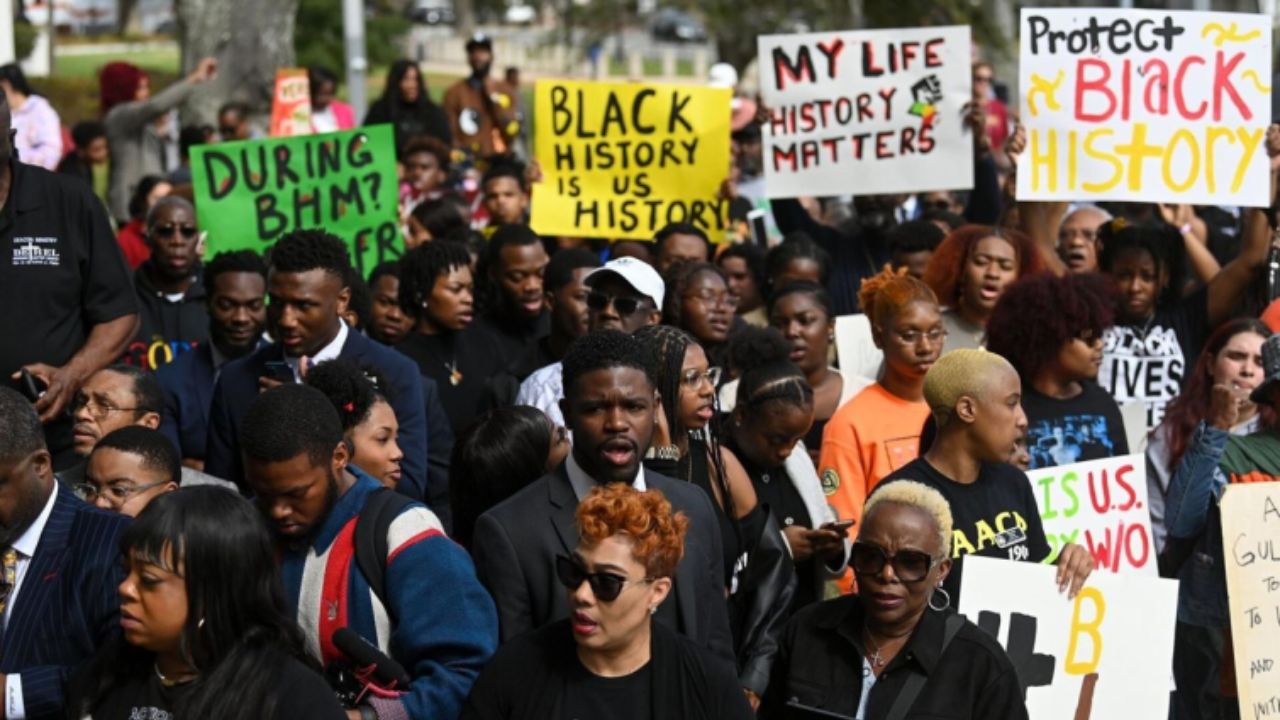Miami Protests Erupt Over Controversial Black History Curriculum in Florida: Teachers, students, and labor leaders rallied at the Miami school district office on Wednesday, voicing their concerns over Florida’s recent guidelines on teaching Black history. Critics argue that these standards present a skewed perspective on slavery.
Miami Protests Erupt Over Controversial Black History Curriculum in Florida:]
Those who gathered outside the Miami-Dade County School Board were particularly disturbed by a section of the curriculum that suggests enslaved individuals “honed skills that occasionally worked to their advantage.”
Governor Ron DeSantis, eyeing the 2024 GOP presidential nomination, stands by the new curriculum. He believes detractors, including Vice President Kamala Harris and two prominent Black Republicans in Congress, are taking a single line out of context.
Marvin Dunn, a retired psychology professor from Florida International University and the march’s organizer, expressed his discontent: “DeSantis’ newly introduced state standards are unacceptable. We won’t stand by and let our children learn that there were benefits to being enslaved. That’s a distortion of the truth.”
Among the speakers was Tennessee Representative Justin Pearson, who gained national attention after being ousted from the predominantly Republican legislature for spearheading a gun control protest. He was later reinstated and secured a win in a special election.
Vice President Harris, the first Black individual to hold the office, had previously visited Florida to criticize the curriculum. Senator Tim Scott from South Carolina, the only Black Republican in the Senate and a potential presidential candidate, openly criticized DeSantis.
Many believe these educational standards are just another attempt by the governor to undermine Black history. Earlier this year, DeSantis’ team vetoed a new Advanced Placement course on African American studies, deeming it against state regulations.
Furthermore, DeSantis has championed the “Stop WOKE Act,” restricting discussions on race in educational and corporate settings, and prohibited state universities from allocating state or federal funds for diversity initiatives.




